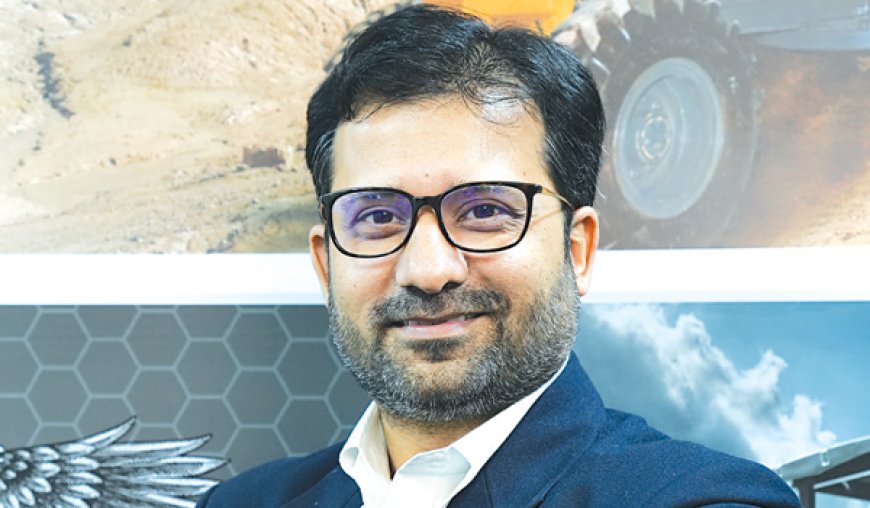We believe that sustainability will play a pivotal role in the manufacturing and operations of construction equipment.
Shalabh Chaturvedi, India General Manager, CASE Construction Equipment India What specific technologies or features do you incorporate into your sustainable construction equipment? At CASE Construction Equipment, we prioritize the integration of specific technologies and features into our sustainable construction equipment.

What specific technologies or features do you incorporate into your sustainable construction equipment?
At CASE Construction Equipment, we prioritize the integration of specific technologies and features into our sustainable construction equipment. Our commitment lies in developing products that are not only energy-efficient but also align with the principles of environmental sustainability. Our range of smart construction equipment boasts highly fuel-efficient engines that comply with the latest emission norms as we have adapted to the BS-CEV IV emission standards and preparing for the upcoming transition to BS-CEV V standards by April 2024.
Most importantly, by combining fuel efficiency, productivity, and adherence to emission norms, we strive to provide construction equipment that minimizes energy consumption and contributes to a cleaner and more sustainable environment. We consistently pursue innovation and enhancements in our products, aligning them with green concepts and sustainable practices. For instance: the CASE 952EX soil compactor comes with up to 5% improved fuel efficiency along with a new diesel oxidation catalyst [DOC] system for exhaustive after treatment. Similarly, CASE’s 770NXe Loader Backhoe offers three working modes – ECO, STANDARD and POWER. The ECO mode delivers best fuel efficiency with a working reach of up to 22% and lower maintenance cost of up to 12%. The STANDARD mode gives a perfect balance of fuel efficiency and productivity. The POWER mode offers increased productivity.
What role do you believe sustainable construction equipment will play in the future of the construction industry, and how is your company preparing for this shift?
We believe that sustainability will play a pivotal role in the manufacturing and operations of construction equipment, thereby transforming the industry. As environmental concerns continue to grow, there is a pressing need for eco-friendlier and energy-efficient solutions in construction operations. At our company, we are fully committed to embracing this shift towards sustainability.
To prepare for this transition, we have been investing heavily in research and development to create innovative and environmentally conscious construction equipment. Our focus is on developing machines that not only deliver exceptional performance but also minimize environmental impact. This includes incorporating advanced technologies and engineering practices to optimize fuel efficiency, reduce emissions, and enhance overall energy management.
What other steps is your company taking to promote sustainability in the construction industry beyond producing sustainable equipment?
We are actively involved in sustainable initiatives that contribute to the environment and community. For example, at our Pithampur plant, we have installed solar panels that generate up to 25% of the plant’s energy from a renewable source. This step reduces our reliance on fossil fuels and decreases carbon emissions. Additionally, we have adopted a pond, Sanjay Jalashay, as part of our Jal Sanchay Water Conservation Project, emphasizing our commitment to water conservation and ecological preservation.
Furthermore, our parent company, CNH Industrial was placed in the top 1% of over 7,800 companies assessed by the S&P Global Corporate Sustainability Assessment. The annual Sustainability Yearbook identifies companies that have demonstrated strengths in corporate sustainability.
Hits: 5








